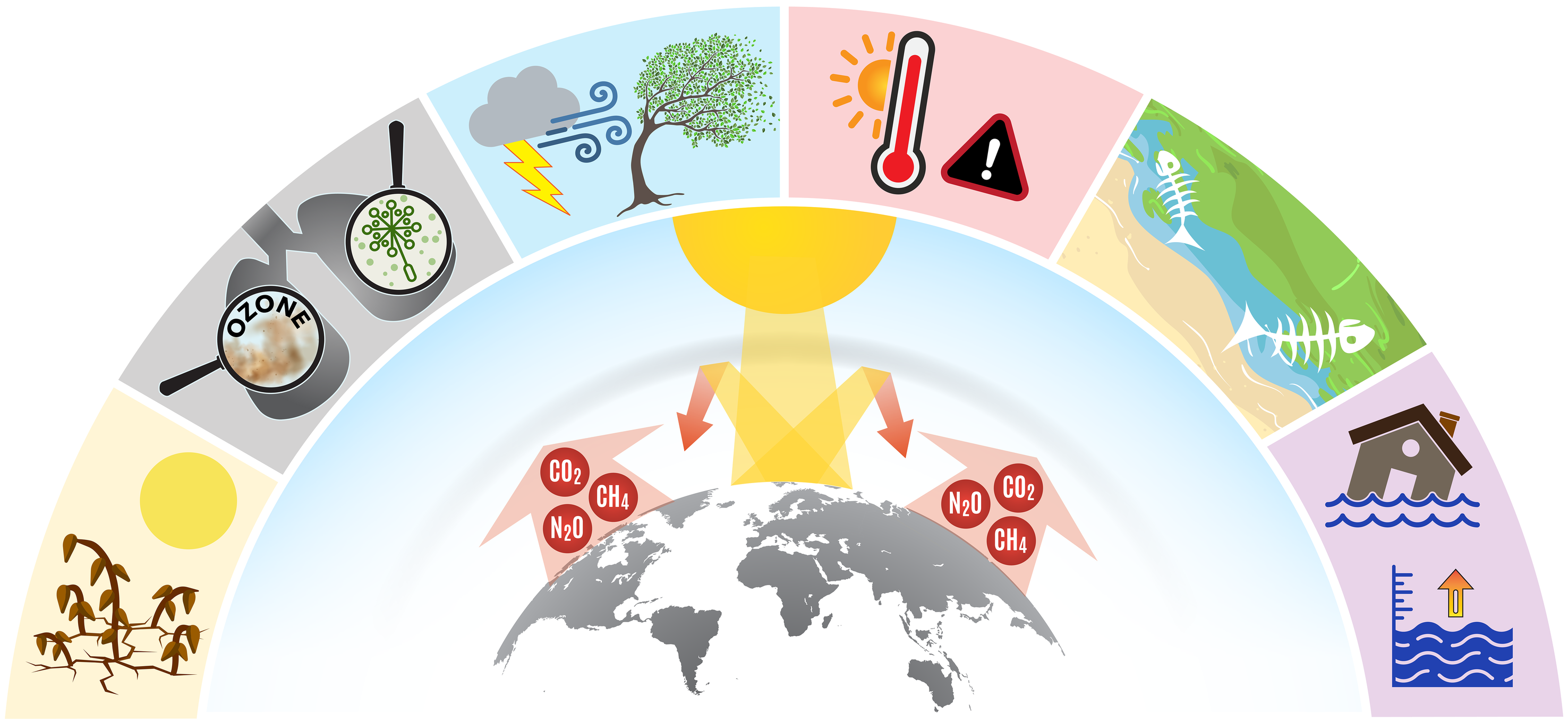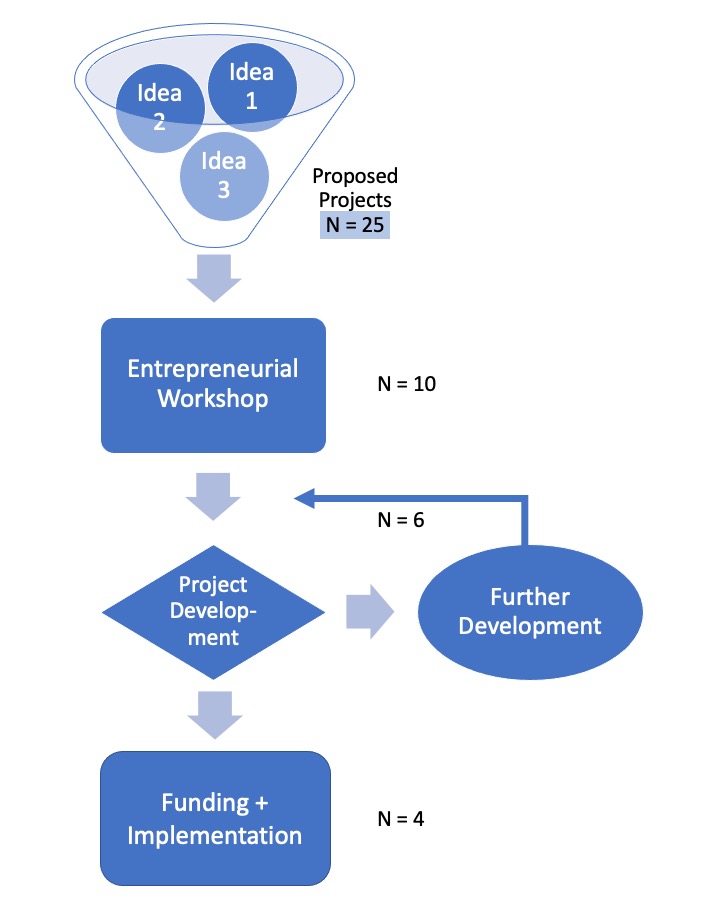
FORMAT FOR PROPOSAL
Up to two pages. List the participant(s), succinctly state the idea, provide a statement of need or rationale, describe the approach and the end product or outcome. Submit single-spaced, 1-inch margins, 11-point font. Prior projects are not eligible to compete.
PROBLEM: Climate change is one of the most significant threats to human health. Actionable solutions are needed.
Climate change is an existential threat to humanity and is contributing to extreme weather disasters (extreme heat emergencies, droughts, wildfires, floods, hurricanes, derechos), sea level rise, and species extinctions. The magnitude of the problem demands many approaches and diverse strategies at the local, national, and global scale.

© 2023 Peter S. Thorne
WHAT IS THE CHALLENGE? To develop innovations that reduce health effects of climate change to reduce its impact. The goal is to create and develop approaches that are feasible, actionable, and sustainable.
WHO CAN APPLY? University of Iowa students (undergraduate, graduate, and professionals), faculty, and staff.
HOW TO THINK ABOUT YOUR APPROACH
Approaches to small, tractable issues can positively impact the larger problem in many ways. Therefore, projects might involve technical solutions to mitigate health impacts, translation of knowledge to the public or those responsible for public health measures, new procedures for assessing health impacts of climate change, and others.
WHO WILL JUDGE THE PROPOSALS? A team of scholars and business leaders from within and outside the University, including experts in climate change, community engagement, and entrepreneurship.
WHAT SUPPORT IS AVAILABLE?
► Entrepreneurial training workshops
► Facilitated connections with innovators
► $2,500 to support further planning and development
► Advanced teams receive up to $10,000

TIMELINE
OCTOBER, 2024
Participants develop their proposals.
Proposals due Oct. 7
OCTOBER, 2024
10 proposals will be chosen to advance to NSF I-Corps Workshop. This will be done the week of Oct. 14.
OCT. 21-NOV. 18, 2024
NSF I-Corps Workshop dates.
DECEMBER, 2024
Selection of top four proposals.
FUNDING
This Climate Change and Health Challenge is supported by the Burroughs Wellcome Fund, a generous gift from Don Diebel, MD, PhD, and Cindy Diebel, made through the University of Iowa Center for Advancement, as well as funding from the Iowa JPEC, the University of Iowa Office of the Vice President for Research, and the Office of Undergraduate Research.
CATEGORIES. The Challenge includes any approach to limit the degree or effects of climate change on health or public health. Categories might include but are not limited to:
Health, including mental health
Policy and processes regrading health effects of climate change
Disaster prevention, public health preparedness, response
Efficiency and sustainability of health and public health measures
Communication and social innovations
Protection or air quality and drinking water resources
Human migration and displacement

BENEFITS
► Education. In-depth study, analysis, problem solving, and success skills. Teams cultivate intellectual energy and can discover the value in a wide array of interdisciplinary skills.
► Research and Development. Learn important skills in research and development through creative approaches and implementation. Unleashing the power of unfettered imagination increases the probability of developing impactful solutions.
► Entrepreneurial Activity. Develop skills to tackle tractable issues in for-profit, non-profit, and other models.
► Engagement. Become engaged with a diverse group of participants, mentors and alumni, enhancing education, project development, and relationships including those with industry, and investment.
► Impact. Broad participation will increase awareness, alter personal and public behavior, and foster innovations and policies that reduce climate change and its impact.
► Funding. The Challenge will prepare University of Iowa for dramatic increases in NIH, NSF, foundation funding for research, innovation, and implementation. The focus will often be interdisciplinary.
► Future. Expansion to other universities and colleges in Iowa, provide a national model.
FORMAT FOR PROPOSAL
Up to two pages. List the participant(s), succinctly state the idea, provide a statement of need or rationale, describe the approach and the end product or outcome. Submit single-spaced, 1-inch margins, 11-point font. Prior projects are not eligible to compete.